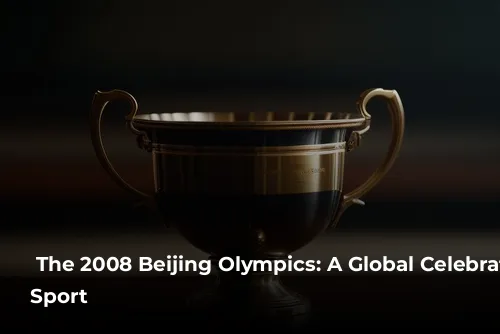The 2008 Beijing Olympics, a grand athletic event held in the capital of China, took place from August 8 to 24. It was the 26th edition of the modern Olympic Games, with a record number of 200 Olympic committees sending close to 11,000 athletes to compete across 28 sports. The Games were thoughtfully scheduled to begin at 8:08 pm on the eighth day of the eighth month of 2008, as eight is considered a lucky number in Chinese culture.
The selection of Beijing as the host city by the International Olympic Committee (IOC) on July 13, 2001, sparked a massive effort in China. The nation invested heavily in urban rejuvenation, infrastructure expansion, and the construction of Olympic facilities not only in Beijing but also in six other cities: Qingdao, Hong Kong, Tianjin, Shanghai, Shenyang, and Qinhuangdao. The anticipation surrounding the Games was overshadowed by several challenging events in the months leading up to August 8. A devastating earthquake in Sichuan province brought global attention to the country’s pollution problems. Meanwhile, protests over China’s human rights record in Tibet and criticism of the government’s control of information also made headlines. Despite these issues, China remained determined to showcase its modernity and influence to the world through the Olympics.
A Triumph of Organization and Athletics
The Beijing Games unfolded remarkably smoothly, earning the IOC’s praise as a resounding success. The organizing committee received high marks for the exceptional facilities constructed for the event. The National Stadium, fondly nicknamed the Bird’s Nest, designed by renowned Swiss architects Jacques Herzog and Pierre de Meuron, and the National Aquatics Center, known as the Water Cube, designed by China State Construction Engineering Corporation Ltd. (CSCEC) and architects Peddle Thorp Walker (PTW) with engineering by Arup, were both lauded for their modern design. In contrast to these ultramodern structures, the cycling road race started near Tiananmen Square and the Forbidden City and followed a picturesque route along the Great Wall, connecting the Games to China’s rich historical landscape.

A Record-Breaking Celebration of Sport
The Beijing Games shattered the previous record for participating National Olympic Committees (NOCs) set by the Athens Games in 2004, with a remarkable 204 NOCs represented. The competition involved almost 11,000 athletes competing in 302 events across 28 sports. Four nations—Afghanistan, Mauritius, Tajikistan, and Togo—celebrated their first-ever Olympic medal wins. Mongolia, Panama, and India achieved historic milestones as athletes from these countries won their first individual gold medals. The Games also saw the introduction of two new sports: the 10-km marathon swim and bicycle motocross (BMX) racing.
Unforgettable Performances by Olympic Legends
The Beijing Games were etched in history thanks to two legendary sporting achievements. American swimmer Michael Phelps made history by surpassing Mark Spitz’s record for the most gold medals won in a single Olympics. He secured gold in all eight events he entered, bringing his career total to 14, another Olympic record. While Phelps’s achievements would have been the top story in almost any other Olympics, sprinter Usain Bolt of Jamaica captured the world’s attention with his electrifying performances. He not only claimed gold in both the 100-meter and 200-meter sprints but also shattered the world record time in each event, earning the title of “the fastest man alive”. He later added a third gold medal as a member of Jamaica’s 4 × 100-meter relay team, although the medal was later stripped from the team after a 2017 revelation of a failed drug test by one of the team members.
The Beijing Olympics: A Legacy of Triumph
The Beijing Games were a triumph for China, as the country achieved an unprecedented feat by winning more gold medals in a single Olympiad (51) than any other nation since 1988. The Games also left a lasting legacy of impressive infrastructure and a renewed sense of national pride. The Beijing Olympics were a celebration of sporting excellence and cultural diversity, and they will forever be remembered as a testament to China’s rise as a global power.



